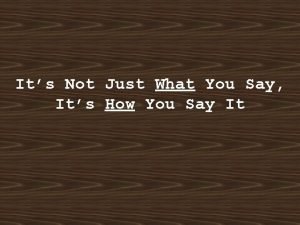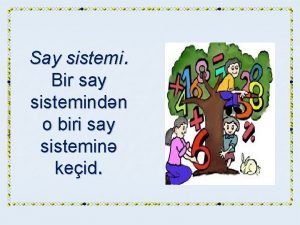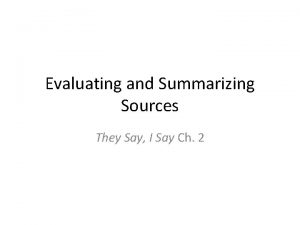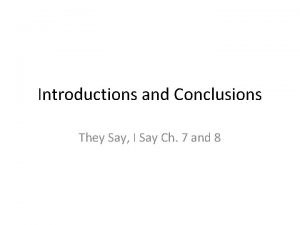Energy and food Energy and food They say
















- Slides: 16

Energy and food

Energy and food • They say ‘you are what you eat’. This suggests that what you put into your body is what you will get out of it. If you eat healthy foods, you will look and feel much better. You will also have more energy to play sport and enjoy life.

Energy and food When you exercise you use up more energy than usual. Energy comes into the body in the form of food and drink. Energy comes from foods that contain carbohydrates, fat and protein.

Energy and food Carbohydrates are the body’s main source of energy. Some carbohydrates break down quickly, giving your body a short burst of energy. Once this energy is used up, however, your energy levels drop quickly. These foods are called high GI (glycaemic index) foods.

Energy and food • Other carbohydrates break down slowly. They give you energy for a longer period of time. They are called low GI foods. Generally, it is better to eat low GI foods so that your body has more energy for longer.

Type of food Bread Cereal Fruit Dairy Snack GI table Low GI High GI

Energy demands When an athlete is playing sport or exercising, they need to balance the amount of energy going into their body with the amount of energy going out of it.

Energy Demands The energy going in (via food and drink) is called energy intake. The energy being used up in the process of exercising is called energy expenditure. If your energy intake is more than your energy expenditure, then you will put on weight. This is because you are not using the energy you are putting into your body, so your body stores it in the form of fat.

Analysing energy intake 1) What do you think will happen to your weight if your energy expenditure is more than your energy intake? 2) If you are preparing for an athletics carnival, would it be better to eat a low GI or high GI meal? Why? 3) Would you have more energy to play sport for a long period of time after eating a salad sandwich on white bread or on grainy bread?

Digestive system

Digestive system There are two types of digestion. Mechanical digestion is the physical breakdown of large pieces of food into smaller pieces through, chewing (mastication). While chemical digestion uses enzymes to break down this food mass further into small molecules which the body can separate and use.

Digestion in the mouth • Saliva in our mouths plays a key role in initial digestion by moistening the food to help with the mechanical chewing and swallowing process. Saliva also contains an enzyme which starts the chemical digestion of starchy foods. • Our salivary glands produce around 1. 5 litres of saliva each day!

Getting to the stomach • The pharynx, at the back of the throat, has a flap of tissue called the epiglottis that closes during swallowing to prevent food going down the trachea (windpipe). • Once swallowed, food travels down through the oesophagus to the stomach, taking about 7 seconds to get there.

Stomach Enzymes in your stomach and small intestine help to breakdown carbohydrates fats and proteins. The adult stomach has a very small volume when empty but can expand to hold up to 1. 5 litres of food when full.

Intestines • Most of the digestion and absorption of food nutrients actually takes place in the small intestine. The stomach passes on a thick liquid and enzymes continue to break this down in the small intestine which absorbs the nutrients into the bloodstream.

Intestines • On average, the human adult male's small intestine is 6. 9 m long, and the female's 7. 1 m). • The large intestine is approximately 1. 5 m long.
 They say i say gerald graff summary
They say i say gerald graff summary They say, i say examples
They say, i say examples They say/ i say
They say/ i say They say i say quotation sandwich
They say i say quotation sandwich They say paragraph
They say paragraph They say / i say paragraph examples
They say / i say paragraph examples Voice markers they say i say
Voice markers they say i say Don't blame the eater summary
Don't blame the eater summary What is a quotation sandwich they say i say
What is a quotation sandwich they say i say Planting a naysayer in your text summary
Planting a naysayer in your text summary Templates for explaining quotations
Templates for explaining quotations They say i say chapter 10
They say i say chapter 10 How do you say puente in english
How do you say puente in english They say i say
They say i say It’s not just what you say, it’s how you say it.
It’s not just what you say, it’s how you say it. Movqesiz say sistemleri
Movqesiz say sistemleri Some say the world will end in fire some say in ice
Some say the world will end in fire some say in ice


























